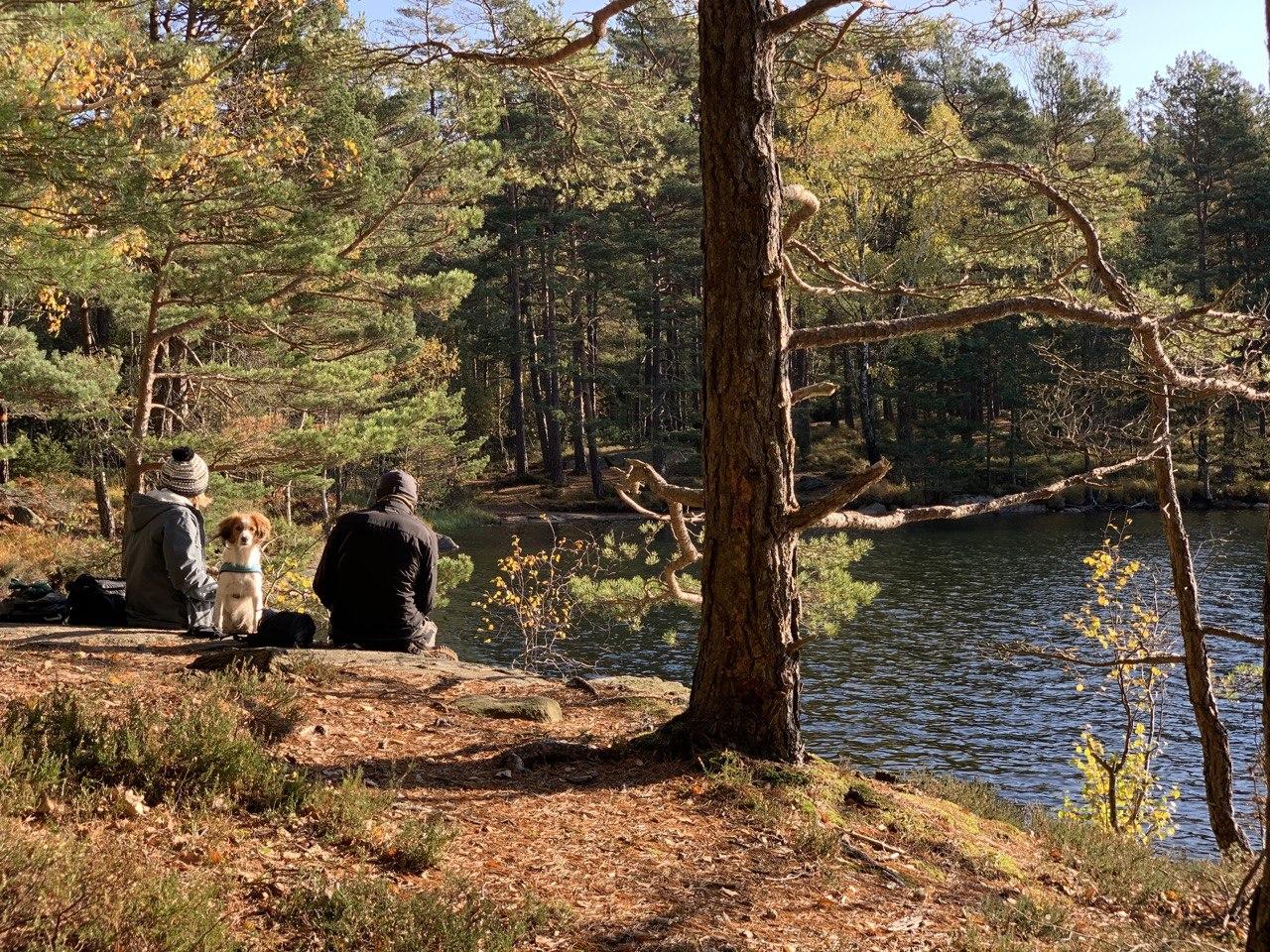Tenday Notes 18 Oct - 27 Oct

Every ten days I share a quick digest of what I've been working on. Here's the latest. More in the series here. Want them in your inbox? Sign up.
For the last couple of months I've been redesigning my website from the ground up, and over the weekend I hit publish! Go check out the all-new, all-singing, all-dancing duncangeere.com in your favourite browser.
I've been writing up the process in this very newsletter, but click through to this blog post if you're a recent subscriber, could do with a refresher, or if you'd just like to see some images of the steps I took along the way. The blog post also goes into detail on the tech stack I used and the process I went through, which I think are both pretty solid.
As I wrote in the blog post, I'm really pleased with the result. Not only was it a satisfying project, but more importantly I learned a lot of new skills in the process - skills that I'll be able to sell in the future when I need to build a site around a visualization, or similar. I now also have a much deeper understanding of how the site works, and how it can be further enhanced in the future - with a more comprehensive portfolio section, the integration of my blog, and more.
My ask to you - have a click around, on as many devices as possible, and send me a screenshot if anything looks broken or wrong. As a one-man-band, it's tough to test on all the zillions of devices connected to the web these days. Hopefully it stands up!
I have been reading a series of articles about bread. Well, actually, it's sort of about how the entirety of society worked in the pre-modern era. But it's anchored around bread, and it's very good.
It's split into four parts - the first is about farmers, the second is about big farmers (i.e. landowners), the third is about farming and then the final piece is about markets and merchants and taxes (there's also an addendum about rice farming cultures). It's a fascinating look into the foundations of human civilization, and all the stuff that had to be done to just keep going. Stuff we very much take for granted these days.
Here's one of the best bits from the first part
Most modern folks think in terms of profit maximization; we take for granted that we will still be alive tomorrow and instead ask how we can maximize how much money we have then (this is, admittedly, a lot less true for the least fortunate among us). We thus tend to favor efficient systems, even if they are vulnerable. From this perspective, ancient farmers look very silly, but this is a trap, albeit one that even some very august ancient scholars have fallen into. These are not irrational, unthinking people; they are poor, not stupid – those are not the same things. Because these households wobble on the edge of disaster continually, that changes the calculus. These small subsistence farmers generally seek to minimize risk, rather than maximize profits.
You can, and should, read the whole thing.
Fans of reading good things will want to check out ʄilaments. It "tells the stories of how fungi have been, are and will be changing the world".
it's written by my partner Silfa, who has been studying fungi for more than a decade. She's amassed a vast collection of knowledge in that time about the vital role that these not-quite-plants-and-not-quite-animals play in our lives.
It's a limited-run thing. Ten episodes and then it'll be over, starting in the next month or two. Sign up now so you don't miss out.
Fungi aren't plants, and they're not animals either. They're a weird, third thing. In recent decades we've only slowly started to understand that all life on Earth is utterly reliant on these odd, alien, waste-recycling life-forms.
That's why I'm super excited about Filaments, my partner Silfa's upcoming narrative newsletter on the past, present and future of humankind's relationship with fungi.
It's a limited-run thing. Ten episodes, which will start to be delivered in the next few months. Sign up today so you don't miss out.
Speaking of interesting newsletters, Oliver Burkeman, who until recently wrote the Guardian's "This Column Will Change Your Life", also has a new newsletter. It's called The Imperfectionist, and judging by the first entry it's going to be pretty good. Here's a sample:
I'm such an enthusiastic proponent of keeping a "done list", which starts empty, first thing in the morning, and which you then gradually fill with whatever you accomplish through the day. Each entry is a cheering reminder that you could, after all, have spent the day doing nothing constructive – yet look what you did instead!
You can sign up here.
A few notes on music:
- I made a Half Man Half Biscuit sampler playlist for a friend (Hi Isak!), and figured I'd share it in case any of the rest of you aren't familiar with their oeuvre and would like to be. They're... an acquired taste. But if you like the lyric "There's a man with a mullet going mad with a mallet in Millets!" then it's for you.
- The greatest song of the year is undoubtedly "Library Takeout" by MicrOpaqu3 (the story behind it).
- Most of my work lately has been done to Grouper, whose minimalist, dreamy albums are just the right blend of engaging and backgroundy. Start with 2011's Alien Observer.
- I'm a bit obsessed with France Gall's "Der Computer Nr. 3" which I found on this playlist of pre-Krautrock songs with "motorik" beats. Also on the list - the astoundingly great "All I Want" by the Supremes.
- There's a new remix album of Chilly Gonzales' soundtrack to Ivory Tower, which is my favourite film about chess. Or any game, actually. In fact it's just straight up one of my favourite films.
- More new Yo La Tengo!
I've just finished Kissa by Kissa, the first book to come out of Japan-based writer and walker Craig Mod's membership programme. It's a summary of his walk last year along the Nakasendō, stopping off at local cafes along the way to eat pizza toast.
It's a lovely read, packed with fine detail and grand observations, and illustrated with beautiful photographs of the people he met and places he visited along the way. The care and attention he put into it, the craft with which it was made, is evident on every page.
It's expensive for sure (much cheaper if you're in his membership programme), but if you want to get a glimpse of what's possible in independent book-making and publishing in 2020, then you'll want to get a copy before it sells out.
After some deliberation and research, I've switched my note-taking system from SimpleNote over to Obsidian (Mac, PC, Linux, free) and 1Writer (iPhone and iPad, $5ish).
The latter is a fast, powerful text editor for iOS, which syncs with Dropbox and supports Markdown formatting. I used it to write the majority of my website relaunch blog post in a hospital waiting room the other day (my shoulder is officially healed!), and I had no problem getting into a nice flow state while using it.
The former is a powerful knowledge base application that works on top of a local folder of plain text Markdown files (which I use Dropbox to keep in sync across devices). It has the linking and knoweldge graph features of Roam Research and the like, but it's free and its plugins ecosystem is admirable. It's still in beta at the time of writing, but it's stable and fast and the release roadmap is encouragingly small. The creators also made outlining software Dynalist, which seems simialrly nice.
I'll report back on how it's going in a couple of months. Key thing I need to do to get the most out of it is build the habit of making better notes after reading and watching things, and speaking to people. There's no app for that yet!
Finally, a question. Travelling isn't looking like it's going to be possible for the foreseeable. What are the virtual worlds that I should be visiting instead?
I'm working my way through Disco Elysium at the moment and it's a compelling place but hardly a tourist destination. What are the virtual worlds that you love spending time in? Let me know, and maybe we can even go on a trip together sometime.

